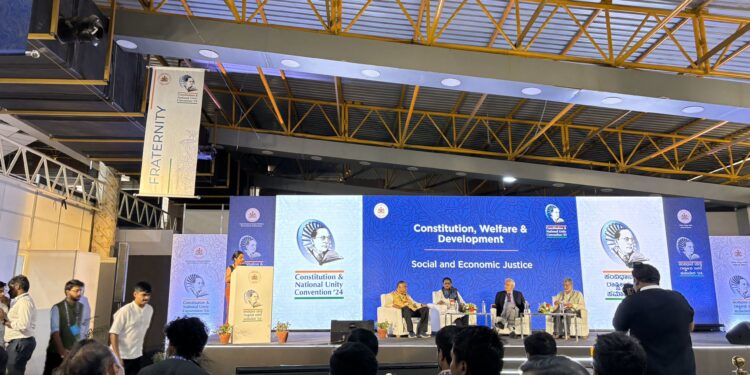In this exclusive series: “Protecting Whistleblowers is Key to Protecting Democracy in India,” WNN reports on efforts within India to incorporate different categories of whistleblowers within a whistleblower protection law that is on the horizon.
On June 1, polls in India closed after a 44-day parliamentary election, which was held in seven phases starting on April 19, 2024. It featured record breaking turnout, totaling around 642 million people. Although results are still rolling out, incumbent Prime Minister Narendra Modi and his party, the BJP, are predicted to win for a third successive term, which concerns human rights activists and scholars who fear further democratic backsliding.
This February, the State of Karnataka –currently controlled by the Congress Party (BJP’s biggest opposition) – hosted the Constitution and National Unity Conference in Bangalore to honor the 75th anniversary of the Indian Constitution and discuss threats to India’s young democracy. The conference featured 20 panels open to around 3,000 attendees, and several closed-door sessions, including a roundtable workshop on whistleblower protection.
The workshop on whistleblowing was facilitated by activist Nikhil Dey, who founded Mazdoor Kisan Shakti Sangathan (MKSS) and was attended by around 50 activists, academics, journalists, policymakers, and anti-corruption practitioners.
One primary goal of the workshop was to expand the definition of whistleblowing.
“We’re defining corruption broadly as any arbitrary use of power,” said Dey. The definition of a whistleblower, he explained, must therefore encompass all of those who are exposing and fighting against the arbitrary use of power: (1) the conventional whistleblower, or “insider,” (2) Right to Information users, (3) human rights defenders and journalists (4) environmental defenders, and (5) social audit participants.
In the last election, the manifesto of Karnataka’s Congress Party promised to pass a whistleblower protection law, so the workshop and conversations that have followed will hopefully inform the State Government about what protections are needed and how to define a “whistleblower” under the law.
The workshop also highlighted the need for solidarity among various whistleblowers and anti-corruption advocates. With election results on the horizon, it served as a reminder to political leaders and anti-corruption practitioners in attendance that protecting whistleblowers is part of protecting constitutional rights and vice versa.
Check out the next article in this WNN Exclusive Series to read about each kind of whistleblower who should be incorporated into the definition of whistleblowing!




